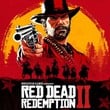God of War (2018). 8 games with brilliant ideas for narrative
Table of Contents
- Genre: action adventure with slasher elements
- Year: 2018
- Platforms: PC, PS4
- Developer: Santa Monica Studio
Occassionally, developers are able to masterfully use the source material and adapt it perfectly to the needs of their game. The best example that comes to my mind is the way Santa Monica Studio used Norse mythology in 2018's God of War.
The developer faced quite a difficult task, as they had to introduce a character derived from Greek myths - Kratos - to the world of Scandinavian legends. At first, you might think that this would result in many popular motifs losing their meaning. But that didn't happen. Norse mythology, as portrayed in the God of War series, can be at best a good starting point to learn the true myths, but they have been adapted so comprehensively that it's a real pleasure to notice and compare the differences between them, both big and small.
This is mostly thanks to the stories told by Mimir. I get the impression that the better one knows Norse mythology, the more interesting and entertaining the become. Interestingly, at first I thought that knowing the myths would spoil the fun and the overall perception of the game. Suffice it to say that the stranger who came upon Kratos and Atreus in their hut has never been unfamiliar to me - who else could be immune to attacks if not Baldur. The same applies to the witch from the woods - it had to be Frigg (called Freya in-game).

These two observations were enough for me to predict the oncoming plot of God of War . Still, a little detail was eluding me - I was wondering where Loki's place was in all of this. The Nordic god of deception and mischief was the one responsible for Baldur's death - it was he who handed Hodur the mistletoe arrow that had killed his brother - so his presence in the game seemed obligatory.
And Loki indeed makes an appearance; and although his identity can be guessed relatively early thanks to the aforementioned mistletoe, as well as the suspiciously sparse amount of information about a certain key character in the plot, which are all too strong clues - despite everything, I was still surprised at the reveal, just like Kratos and Atreus. Even the circumstances of Baldur's death didn't clue me in - perhaps because of the emotions accompanying the game's ending.
Having learned the solution to Loki's riddle, I should probably have stood in the corner of the room as punishment, embarrassed by my absentmindedness. Instead, I laughed at myself when I realised how easily the developers managed to fool me. Their narrative trick - of transforming Nordic myths so that all the changes they made converge, more or less, at one point - worked perfectly on me. Interestingly, instead of feeling cheated - by Santa Monica Studio or by Loki - I wanted more. This is why I'm looking forward to God of War: Ragnarok so much.
MOUNTAIN METAPHOR
The starting point for the plot of God of War is that Kratos and Atreus set off to the highest mountain in the world to scatter the ashes of their deceased wife and mother from its peak. However, in the end, one might say that the characters made this journey to rediscover themselves. A similar theme was also used in another game from 2018, namely the platformer Celeste, in which we play as the red-haired Madeline and our goal is to climb the titular mountain so that the main character can learn the truth about herself. It's a simple, but quite clever mix of gameplay and story.






